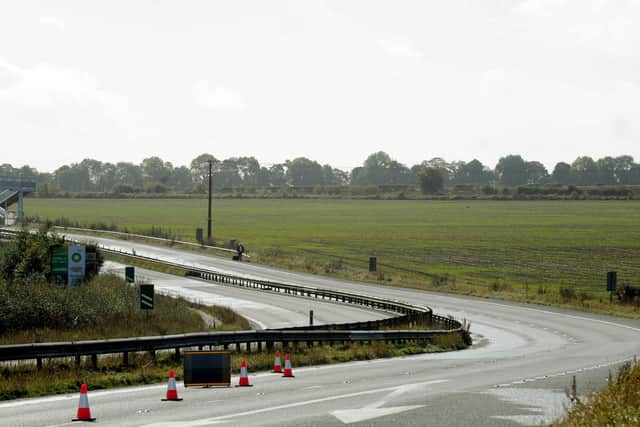How a 'Yorkshire bypass' on the A1 could help keep long-distance traffic off the M1
and live on Freeview channel 276
The upgrading of the A1 between Doncaster and Darrington in West Yorkshire to motorway standard is one of the projects the Government hopes to fund as part of its multi-billion pound Road Investment Strategy.
Along with the dualling of the A64 in North Yorkshire, it is included in the list of schemes that will not start until 2025 at the earliest, with funding to develop the proposals coming in the next five years.


Advertisement
Hide AdAdvertisement
Hide AdMore details of how the scheme could benefit Yorkshire are included in a report to be discussed by northern leaders at a meeting of strategic body Transport for the North on Thursday.
It says the project would involve "upgrading the A1 in Yorkshire to motorway standard, improving the notoriously congested Doncaster bypass and replacing the outdated stretch of dual carriageway between Doncaster and the M62".
It adds: "Coupled with improvements in the Midlands, this would create a ‘Yorkshire bypass’, allowing long distance traffic to stay off the M1 and improve conditions around Sheffield, Barnsley, Wakefield and Leeds."
According to Highways England, the route is currently congested, especially on weekday mornings and evenings, and has a number of local road accesses between Redhouse and Darrington. The number of accidents on this route is higher than the national average.
Advertisement
Hide AdAdvertisement
Hide AdThe A64 and A1 proposals will not get underway until at least 2025 after being included in a later stage of the Government's Road Investment Strategy for the 2020 to 2025 period, also known as RIS2.
Among the schemes to be completed by 2025 including the dualling of the A66 between Scotch Corner and Penrith, while the A63 Castle Street improvement scheme in Hull will cost £355m.
According to the TfN report, RIS2 will "produce a wide range of benefits for millions of people and thousands of businesses and public services who use and depend upon the strategic road network".
It adds: "It will provide a multitude of improvements to people’s lives in the north, including through enhanced performance, reliability and safety of the region’s roads.
Advertisement
Hide AdAdvertisement
Hide Ad"The investment plan contains schemes that will deliver improved reliability and reduced congestion rates in the North, which will in turn boost the economy and unlock new jobs and housing."
It also includes funding to ensure the busiest arterial roads, many of which are now 50 years old, in working condition, by renewing safety barriers and replacing outdated concrete pavement from the early days of the motorway network.
The report says: "The intention is to catch problems before they become serious; and apply quicker, smaller fixes that can be done when the roads are quiet. Roads will run better, with fewer disruptions and fewer potholes."
Comment Guidelines
National World encourages reader discussion on our stories. User feedback, insights and back-and-forth exchanges add a rich layer of context to reporting. Please review our Community Guidelines before commenting.